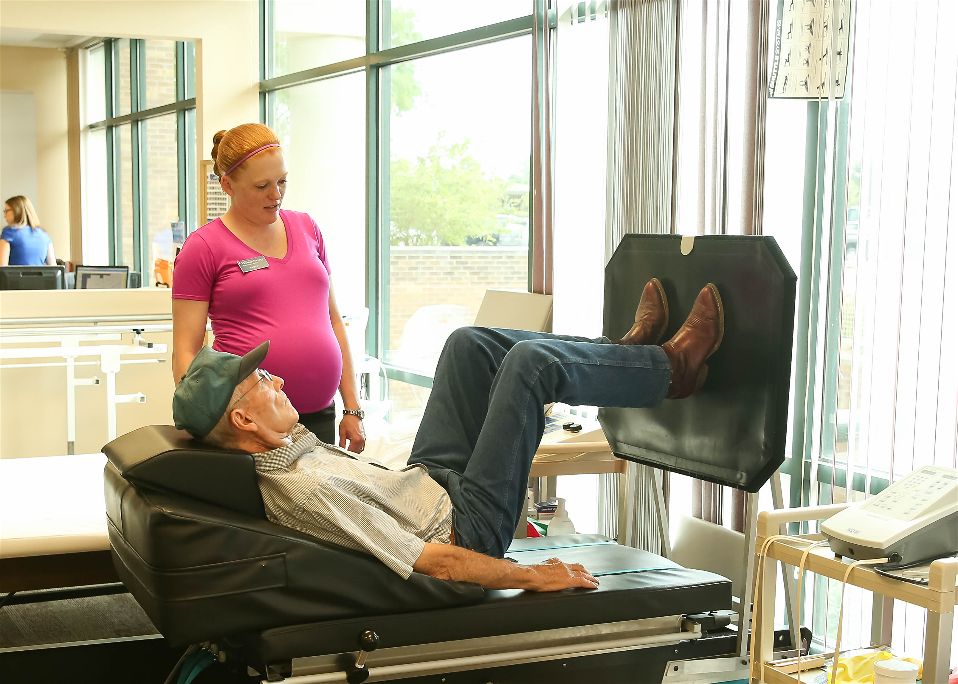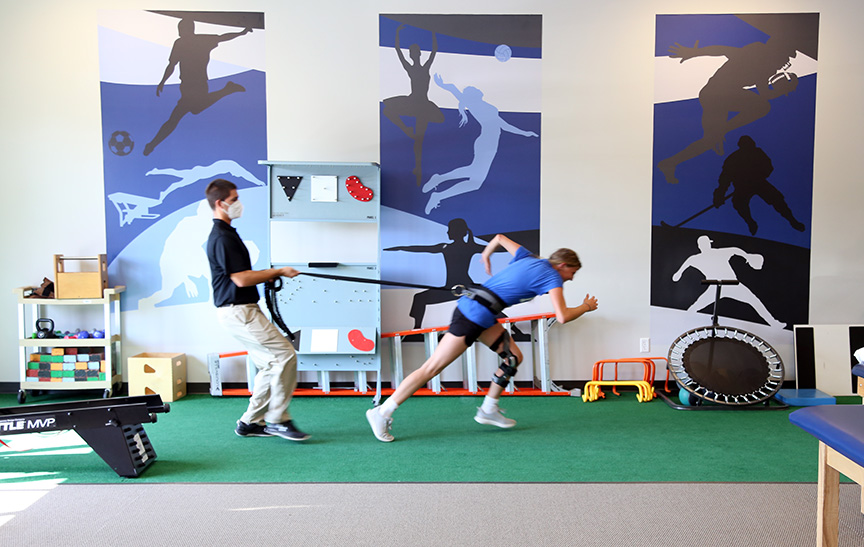Services

Industrial Rehabilitation
We work with employers, case managers and insurers to provide comprehensive work health services focusing on three main components:
-
Injury Prevention
-
Physical Rehabilitation and Treatment
-
Return-To-Work
Injury Prevention
Pre-Employment Assessment
The least costly injury is the one that never occurs. Pre-Employment Assessments focus on determining whether an individual is physically capable of performing a specific job to proactively minimize the risk of injury.
The goal of employment testing has always been to hire individuals physically capable of performing the essential job functions; however, in the past, some employment decisions have been based on stereotypes and medical conditions - stereotypes including age, gender and "healthy" appearance among others. Medical conditions including spine arthritis or degeneration identified on X-ray, high blood pressure, and disability or disease are not good indicators of the candidate's ability to perform the physical tasks of the job. To properly assess this ability, the use of tests that measure an individual's physical abilities must be valid, job-related and consistent with business necessity.
What are the employer's needs when hiring?
-
To comply with all federal legislation
-
To hire healthy and productive workers
-
To ensure workers are placed in jobs they are capable of performing
-
To prevent and reduce injuries and associated costs
Prevention Programs
We work closely with safety professionals to identify where and to whom musculoskeletal injuries may occur and tailor educational programs to promote a safe working environment.
Our prevention programs include:
-
Employee education and management to recognize musculoskeletal risks
-
Identifying ways to eliminate risk
-
Increasing awareness through education to minimize accumulated physical stress of the job
-
Providing customized stretching/warm-up programs to target the muscles employees use most throughout the day
Ergonomic Training
Ergonomics is the relationship between people and the work environment. Ergonomic Training focuses on evaluating a specific work environment and job tasks to identify risk factors that could result in musculoskeletal dysfunction.
Individual Ergonomic Analysis
Evaluate the ergonomics of an injured employee and develop strategies to adjust their workstation to decrease strain and improve efficiency.
Ergonomic Analysis
Evaluate multiple employees performing a job that has high injury rates and develop the potential solution(s) to decrease ergonomic risk factors.
Office Ergonomic Analysis
Evaluate the employee at their computer workstation, identify ergonomic risk factors and assist in developing solutions.
Physical Rehabilitation and Treatment
Central Nebraska Rehabilitation Services provides complete rehabilitation management for patients who are injured or experience acute or chronic pain while at their place of employment. A multitude of services is offered to hasten the patients return to normal functional activities, including the return to work. Our staff works directly with patients, employers, physicians, other health care providers, and attorneys to provide the best possible patient outcomes and to allow the patient to successfully return to the workplace.
Customized Return-to-Work
Our Return-to-Work Programs are designed to provide job-related and injury-specific therapeutic interventions to create customized and cost-effective approaches to the treatment of work-related injuries.
Program features include:
-
Early intervention strategies and ease of access
-
Customized clinical strategies that are aggressive, functionally-oriented and scientifically-based to facilitate early return to work
-
Partnership approach for injured workers, healthcare team members, and employers
-
Job simulation models for clinical advancement and early return to work
-
Ongoing utilization/patient management
Return to Work/Work Conditioning
When injured workers meet established short- and long-term goals via physical therapy or occupational therapy but are unable to return to work due to remaining functional deficits or deconditioning, they may benefit from a higher level of the therapeutic intervention designed specifically with a primary goal of returning to work. Injured workers who benefit most from these programs are usually at least 30 days out from their injury and have a medium or higher physical demand category job to return to. These are full body intensive conditioning programs that focus on work simulation activities to get injured workers back to work.
Return to Work
A highly structured, goal-oriented, individualized intervention program designed to return the employee to work. Our Return to Work programs are multidisciplinary in nature and utilize real or simulated work activities designed to restore physical, behavioral and vocational functions. Return to Work addresses the issues of productivity, safety, physical tolerances and worker behaviors.
Work Conditioning
An intensive, goal-oriented conditioning program designed to restore neuromuscular and musculoskeletal function including strength, power, endurance, joint mobility, ROM, motor control, cardiovascular endurance and functional abilities. The primary objective of the Work Conditioning program is to restore physical capacity and function to enable the injured worker to return to his or her pre-injury job.
Functional Capacity Evaluation (FCE)
A Functional Capacity Evaluation (FCE) provides a comprehensive evaluation that measures strength, endurance, physical demand work level and positional tolerance. The data gathered through this evaluation objectively defines the injured employee's physical capabilities.
The FCE is an important tool used to assist employers, physicians, insurance companies, attorneys, case managers and vocational consultants to determine safe, functional levels for an individual to either return to work or to establish functional ability. The evaluation assists referral sources by offering information for adjudication of claims in short/long-term disability, provides return-to-work capabilities and determines ability levels for liability cases using appropriate medical standards.
For more information on our Industrial Rehab program, please contact Kurt McCallum.
